
Missionary Life
5 Women Who Were Trailblazers in Missions
March 13, 2017
by Mark Watson
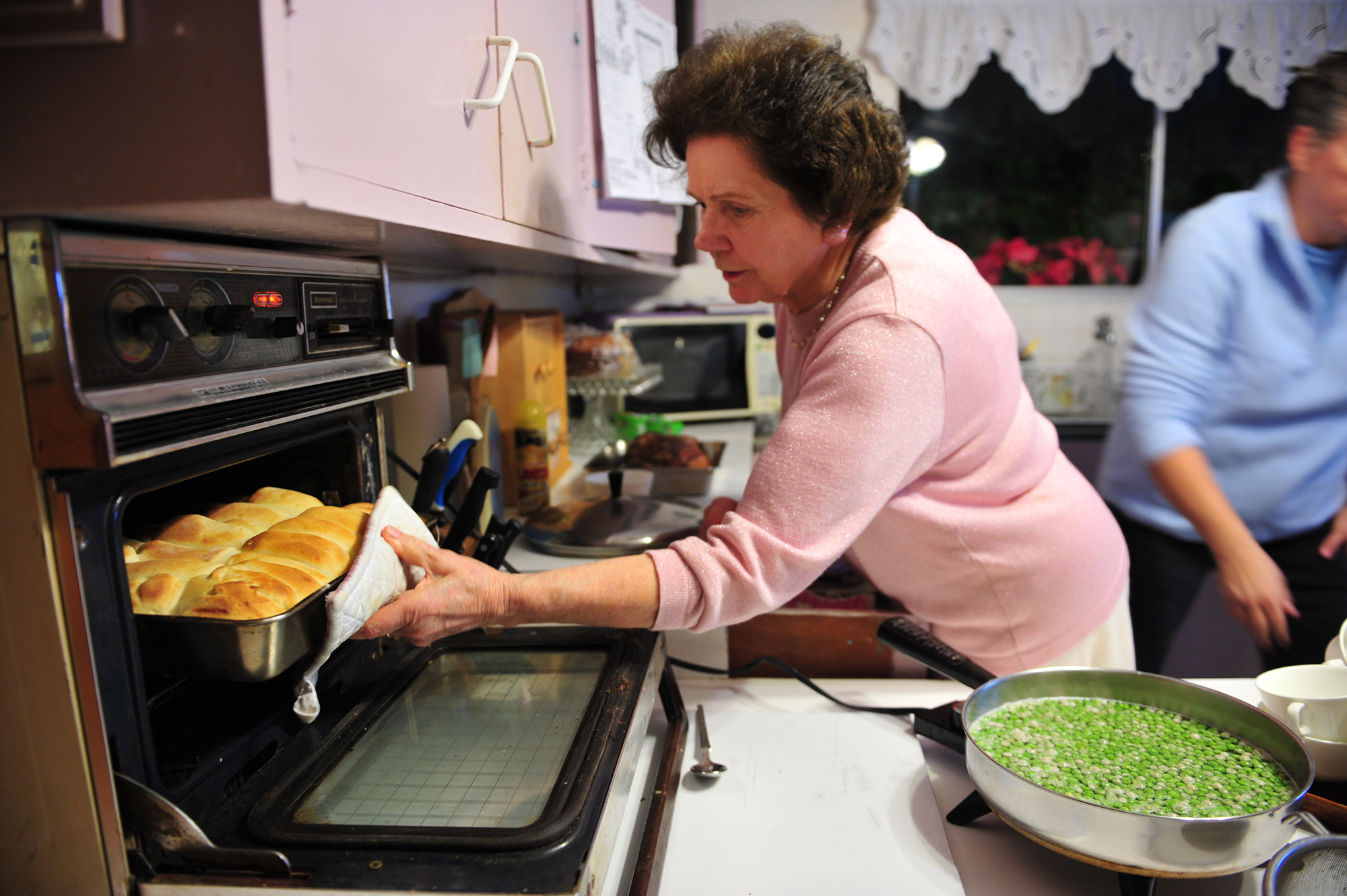
When you think of women in missions, names like Elisabeth Elliot, Lottie Moon and Amy Carmichael might come to mind. Their well-documented lives continue to inspire both men and women to live lives fully yielded to the Gospel.
But the legacy of women on the mission field doesn’t end with them. For hundreds of years, women have been the lifeblood of missions, crossing enemy lines, healing the sick and even risking their lives to spread the Gospel.
Today, we want to share just a few of the amazing stories you haven’t heard yet.
Stella Cox
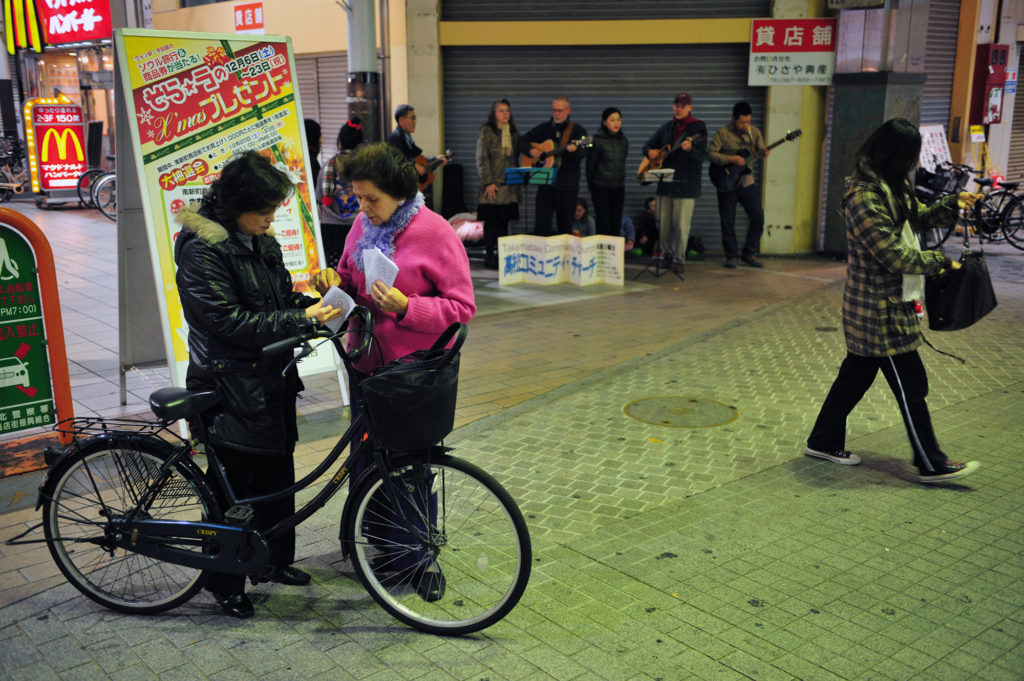
Stella Cox has served in Japan for sixty-five years.
In 1950, young Stella Sluder told God she would go to Japan.
Upon graduating from Bob Jones University, she did just that. Stella sailed for western Japan on October 14, 1952, one year ahead of her fiancé, Ralph Cox.
Stella and Ralph were considered pioneers in the first wave of missionaries dispatched across former enemy lines after World War II. When Ralph joined her on the field, they began a church planting ministry, evangelizing and equipping Japanese believers.
Spurred on by Ralph’s vision to plant 100 churches across Japan, they founded the Takamatsu Christian Center and welcomed thousands of short-term volunteer evangelists, many of whom would return to Japan long-term.
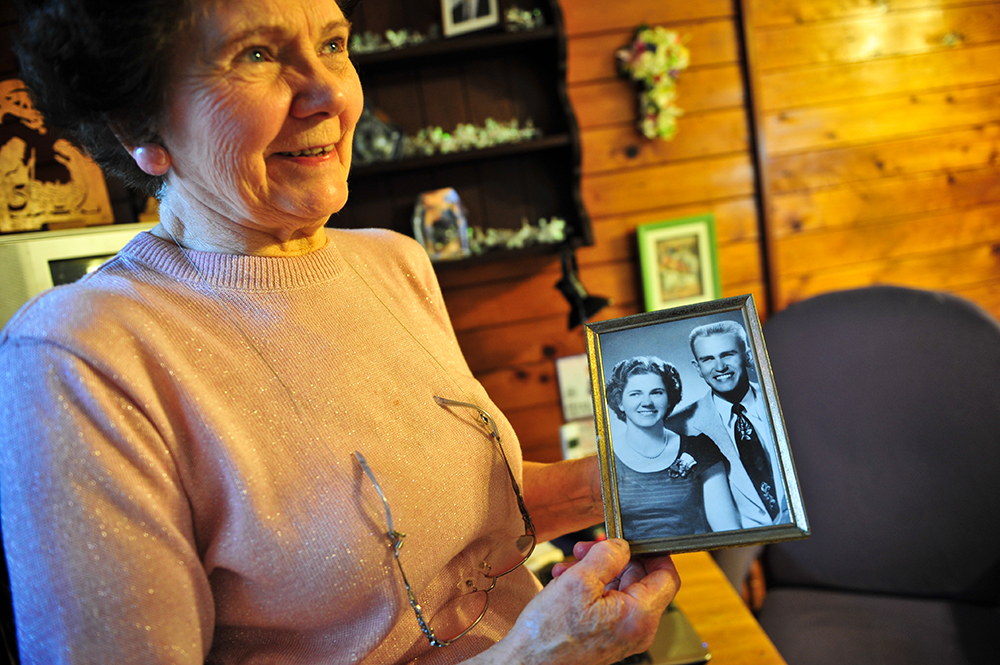
Stella holding a portrait of her and Ralph.
Stella, renowned for her cooking and hospitality, founded the Ladies Luncheon (now 50 years strong), taught cooking classes for 40 years and hosted 15 yearly hospitality seminars.
When Ralph passed away from cancer in 2008, Stella carried on their work in the country they called home. She even used the traditional Japanese condolence gifts from Ralph’s funerals (he had three) to pay off the building for one of their church plants, Seto Uchi Chapel.
“God called me to Japan first, before I ever met Ralph,” Stella said. “I know where I belong.”
Ninety churches, 70 national believers in full-time ministry and 65 years later, you’ll still find Stella in Takamatsu, handing out literature, serving university students in an English café or ministering in six area church plants. She’s written a book, too — One Man’s Vision for Japan — about her partner in life and ministry, Ralph.
To this day, Stella lives by words she wrote in her first prayer letter: “… as I have seen the hungry hearts of these people my heart has overflowed with thankfulness, even to tears, because Jesus has brought me to this land.”
Malla Moe
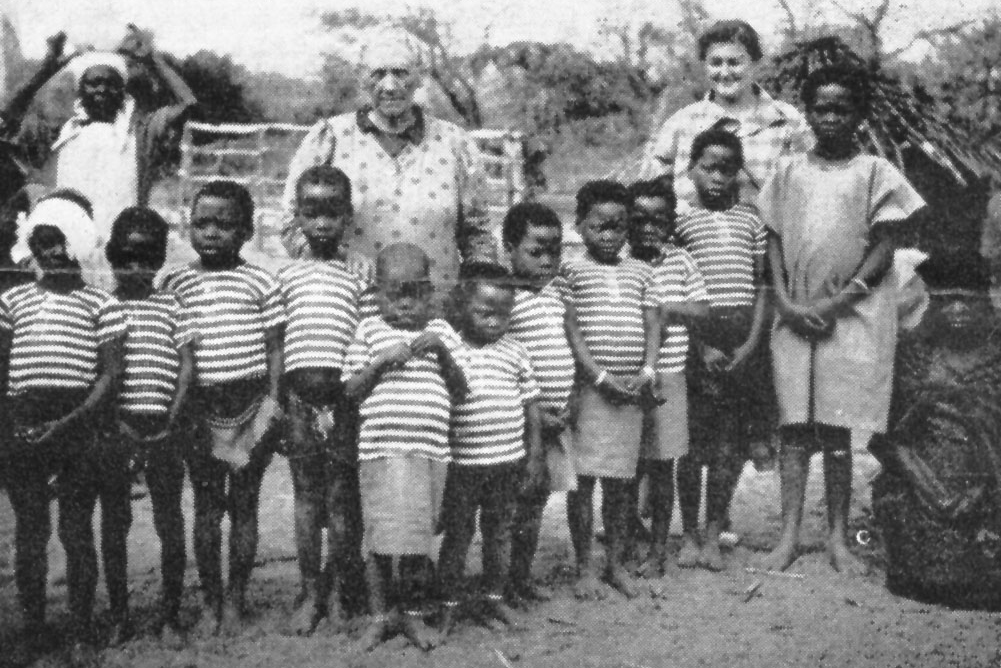
Malla Moe’s love for Christ and adventurous spirit led her to become a pioneer missionary in Southern Africa.
Born Petra Malena “Malla” Moe in Norway in 1863, Malla was part of one of the first missionary teams to enter South Africa and work among the Zulu tribe.
She wrote in a letter dated Jan. 1, 1894: “If God can just get [their] people’s hearts to believe that there is a God in Heaven who loves them, I believe they would soon turn to him, as nothing is as powerful as love.”
At the age of 65, Malla decided she needed to reach the more remote people groups in the area, so she built a “Gospel wagon,” a small house on wheels where she would live and work.
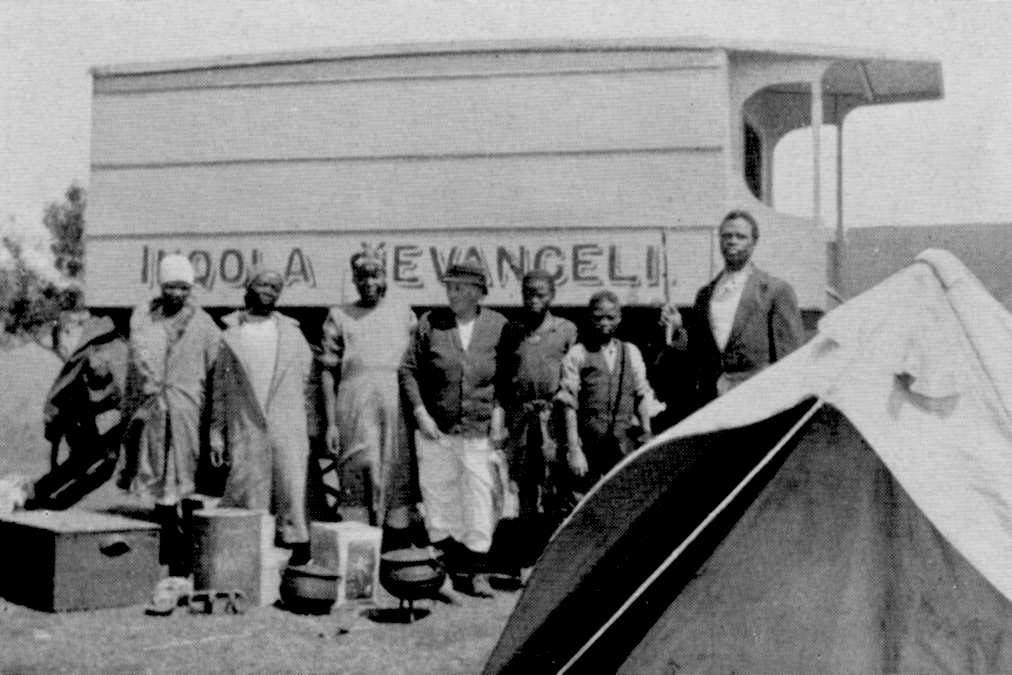
Malla Moe’s Gospel wagon allowed her to remote areas and preach the Gospel.
Over the next 15 years, Malla traveled to some of the least-reached parts of Tongaland, Swaziland and Zululand. She endured malaria outbreaks, droughts and food shortages.
People flocked to Malla and her wagon when it rolled into a village. She handed out small gifts, served tea and talked about Jesus.
Finally, at the age of 80, Malla settled down at the Bethel mission station and became the unofficial hostess, welcoming new missionaries to the field with a proper African meal.
Ten years later, Malla died while surrounded by African believers. Her lifetime of service brought many to Lord, and she helped establish a thriving TEAM ministry in Africa that exists to this day.
Alberta Skinner
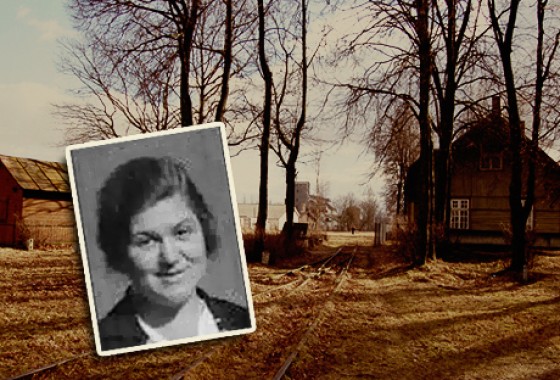
Alberta Skinner continued to proclaim Christ even when persecuted by an oppressive government.
In the 1930s, Alberta Skinner was serving in the far eastern part of Czechoslovakia with Bible Christian Union (BCU), a missions organization that later merged with TEAM, when Russian communists moved in and annexed that section of the country, eventually making it part of the Soviet Union.
The communists seized the Moody Bible Institute graduate and told her, “You can leave and never come back, or you can stay and never leave.”
She stayed.
For many years, BCU didn’t hear a word from her. All financial support and contact with her family and friends was cut off. BCU officials feared that communists had killed her.
One day, 25 years later, the phone rang in BCU’s international headquarters in Pennsylvania. Alberta was on the line. She said she had been allowed to remain behind the Iron Curtain where — though ridiculed and persecuted — she continued to faithfully serve the Lord.
God had led her to a godly Russian pastor. They were married and had six sons. Due to their outspoken faith in Christ, they were forced to live in a small wooden structure with a dirt floor.
Despite their austere surroundings, they joyfully served the Lord and raised their family. Souls were saved and churches were started and strengthened.
Finally, in 1969, Alberta was allowed to return alone to North America to receive some badly needed dental work. The communists told her that if she tried to remain in North America, she would risk harm to her husband and boys.
When she called the mission that day, she uttered not a word of complaint or self-pity. Instead, she praised the Lord for His faithfulness and wanted BCU officials to know she was fine. She then returned to her family and ministry behind the Iron Curtain. She died several years later.
Gertrude Dyck
The daughter of Mennonite parents on the Saskatchewan prairie, Gertrude Dyck didn’t grow up as an adventurer, but her appreciation for simple living and wide-open spaces made her a surprising fit for life in the Arabian Desert.
Dyck applied to TEAM in 1960, during her last year of nursing school. A short time later, she heard about a doctor couple starting a hospital in Al Ain, United Arab Emirates, where the infant and maternal mortality rates had reached 50 and 35 percent, respectively.
The 28-year-old arrived two years later, wearing her Canadian winter coat and not knowing a word of Arabic. However, she soon adopted the local dress and learned to speak the people’s language fluently.
Dyck worked tirelessly in the obstetrics ward and in clinics for women and children. In 25 years of nursing, she served as midwife for many of the 90,000 babies born at the hospital.
Her full embrace of the culture allowed her to earn deep trust as she shared her faith in common and royal homes.
When she retired from nursing, Dyck began working as a cultural consultant, teaching Arabic and sharing insights with new hospital staff. Canada recognized her service with two of its highest honors in 2002, and the United Arab Emirates would posthumously award her the Medal of Independence of the Third Order in 2010.
In 2005, Dyck returned to Canada, where she continued to support missionary endeavors until her death four years later. By then, Al Ain’s infant mortality rate was below 1 percent, and maternal mortality was almost unheard of.
Barbara Chapman
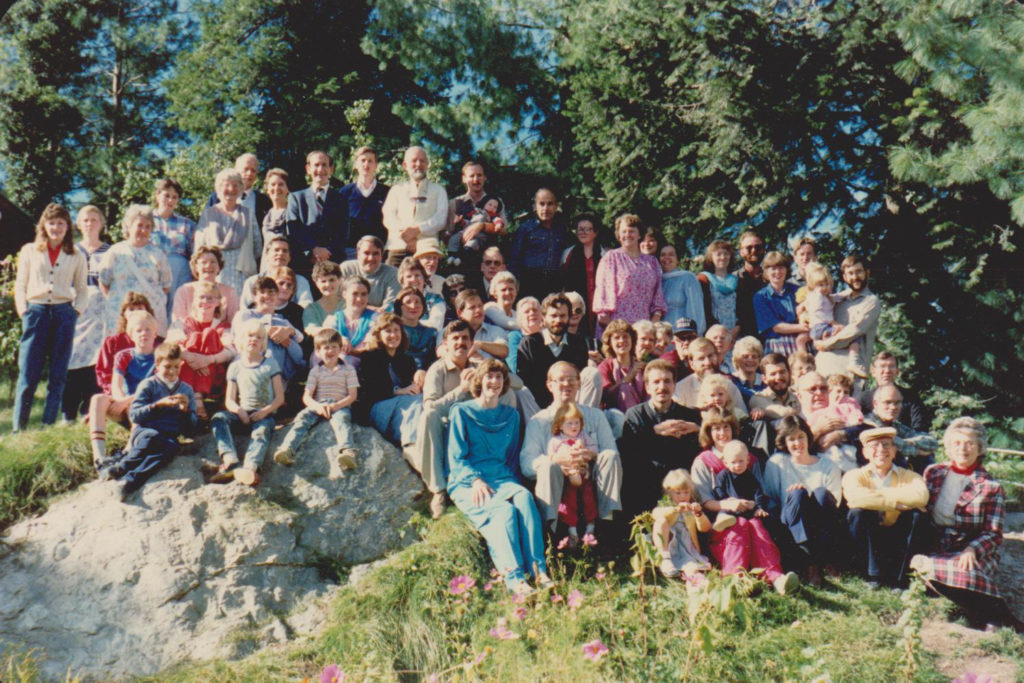
Barbara Chapman, pictured with her coworkers in 1988, pressed on in ministry even while battling a chronic illness.
Barbara Chapman was a 39-year-old chemistry teacher when God led her to South Korea with TEAM in 1977.
Learning Korean was a struggle, but Chapman made it through language school and quickly jumped back into educating others. She wrote a Scripture-based textbook to teach English and began leading Bible studies for Korean women.
In 1981, Chapman was asked to direct the Korea Christian Conference Grounds, and a year later, TEAM named her as field leader for Korea. With a growing ministry-wide focus on church planting, Chapman equipped missionaries to minister in urban areas, and she worked to tie the conference grounds’ camps, retreats and classes to the local church.
In the midst of her work, Chapman was diagnosed with multiple sclerosis, yet she remained determined.
As the South Korean church grew, TEAM leaders sensed it was time to close the field. Chapman moved to China in 1995 to help with a new ministry. She helped organize the office, establish policies and cast vision for the missionaries. She had a heart for encouraging missionaries and Chinese Christians alike to be more involved in outreach.
In 1998, Chapman helped establish a school for the missionaries’ children. The advance of her MS made life difficult, but she pressed on as a principal and teacher, serving as a powerful example of sacrifice to her students. When the disease forced Chapman back to the U.S. in 2002, she continued in administrative work until her retirement.
Chapman died on December 24, 2011, at the age of 73, but her legacy in Asia is still felt today.
Are you considering missionary service? Download our free tool “Am I Ready for Missions?” to get started.


